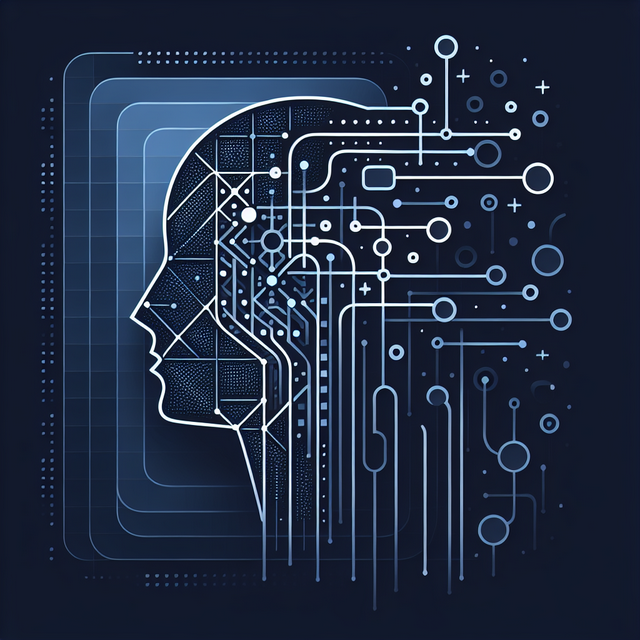
AI-Assisted Coding: A Guide for Enterprise Leaders
In the rapidly evolving landscape of enterprise software development, AI-assisted coding has emerged as a game-changing technology. This transformative approach to software creation is revolutionizing how businesses build, maintain, and optimize their digital infrastructure. As an enterprise leader, understanding the implications of AI-assisted coding is crucial for staying competitive in today’s tech-driven market.
What is AI-Assisted Coding?
AI-assisted coding, also known as AI-powered programming or generative AI for code, refers to the use of artificial intelligence algorithms to help developers write, review, and optimize code. These AI systems can suggest code snippets, complete partial code, and even generate entire functions based on natural language descriptions or existing codebases.
The Impact of AI-Assisted Coding on Enterprise Software Development
The integration of AI into the coding process is reshaping enterprise software development in several key ways:
-
Enhanced Productivity: AI coding assistants can significantly speed up the development process by automating repetitive tasks and providing instant code suggestions.
-
Improved Code Quality: AI tools can help identify potential bugs, security vulnerabilities, and performance issues before they make it into production.
-
Faster Prototyping: Developers can quickly generate prototype code to test ideas and concepts, accelerating the innovation cycle.
-
Knowledge Democratization: AI-assisted coding can help bridge the gap between experienced developers and those new to coding, making software development more accessible.
-
Consistency in Coding Standards: AI can enforce coding standards and best practices across large development teams, ensuring consistency in code quality and style.
Benefits of Implementing AI-Assisted Coding in Enterprise Environments
Adopting AI-assisted coding tools in enterprise settings can lead to numerous advantages:
1. Increased Developer Productivity
By automating routine coding tasks and providing intelligent code suggestions, AI tools can significantly boost developer productivity. This allows development teams to focus on more complex, high-value tasks that require human creativity and problem-solving skills.
2. Faster Time-to-Market
With AI accelerating the coding process, enterprises can bring new features and products to market more quickly, gaining a competitive edge in fast-paced industries.
3. Cost Reduction
By streamlining the development process and reducing the time spent on debugging and maintenance, AI-assisted coding can lead to substantial cost savings for enterprise IT departments.
4. Enhanced Code Maintainability
AI tools can help generate well-documented, clean code that adheres to best practices, making it easier for teams to maintain and update software over time.
5. Improved Developer Experience
AI coding assistants can reduce frustration and burnout by handling mundane coding tasks, allowing developers to focus on more engaging and challenging aspects of their work.
Challenges and Considerations
While the benefits of AI-assisted coding are compelling, enterprise leaders must also be aware of potential challenges:
-
Integration with Existing Workflows: Implementing AI coding tools may require changes to established development processes and workflows.
-
Learning Curve: Developers may need time to adapt to working with AI assistants effectively.
-
Code Quality Assurance: While AI can improve code quality, human oversight is still crucial to ensure the generated code meets all requirements and standards.
-
Security and Compliance: In regulated industries, ensuring that AI-generated code complies with security standards and regulatory requirements is paramount.
-
Dependency on AI Providers: Enterprises must consider the implications of relying on external AI services for critical development processes.
Implementing AI-Assisted Coding in Your Enterprise
To successfully integrate AI-assisted coding into your enterprise software development strategy, consider the following steps:
-
Assess Your Current Development Process: Identify areas where AI can provide the most significant impact and value.
-
Choose the Right Tools: Evaluate different AI-assisted coding platforms to find the best fit for your organization’s needs and tech stack.
-
Pilot Implementation: Start with a small team or project to test the AI tools and gather feedback.
-
Provide Training: Ensure your development team is properly trained to leverage AI coding assistants effectively.
-
Establish Guidelines: Develop clear guidelines for using AI-generated code, including review processes and quality control measures.
-
Monitor and Measure Impact: Use analytics tools to track the effectiveness of AI-assisted coding on your development processes and outcomes.
-
Iterate and Optimize: Continuously refine your approach based on feedback and performance metrics.
The Role of AI Code Metrics in Optimizing AI-Assisted Development
As enterprises increasingly adopt AI-assisted coding, managing and optimizing these processes becomes crucial. This is where platforms like AI Code Metrics come into play. AI Code Metrics offers a comprehensive suite of tools designed to help organizations measure, manage, and enhance their AI-assisted software development workflows.
Key features of AI Code Metrics include:
- AI Code Analysis and Optimization: Automatically analyze AI-generated code for quality, performance, and security issues.
- Strategic AI Impact Metrics: Quantify the ROI of your AI coding initiatives with detailed performance metrics.
- Intelligent Insights and Reporting: Gain actionable insights into your development processes and team performance.
- Integration with Existing Tools: Seamlessly incorporate AI Code Metrics into your current development ecosystem.
- Collaboration and Team Management: Enhance team coordination and knowledge sharing in AI-assisted projects.
- Regulatory Compliance Tools: Ensure AI-generated code meets industry-specific regulatory requirements.
By leveraging platforms like AI Code Metrics, enterprise leaders can ensure they’re maximizing the benefits of AI-assisted coding while mitigating potential risks and challenges.
Conclusion
AI-assisted coding represents a significant leap forward in enterprise software development. By embracing this technology, organizations can enhance productivity, improve code quality, and accelerate innovation. However, successful implementation requires careful planning, the right tools, and a strategic approach to managing AI in the development process.
As you navigate this exciting new frontier in software development, consider how AI Code Metrics can help your organization optimize its AI-assisted coding initiatives. By providing comprehensive analytics, insights, and management tools, AI Code Metrics empowers enterprise leaders to make data-driven decisions and maximize the value of their AI investments in software development.
Are you ready to transform your enterprise software development with AI-assisted coding? Explore how AI Code Metrics can help you measure, manage, and optimize your AI-powered development processes for maximum impact and ROI.